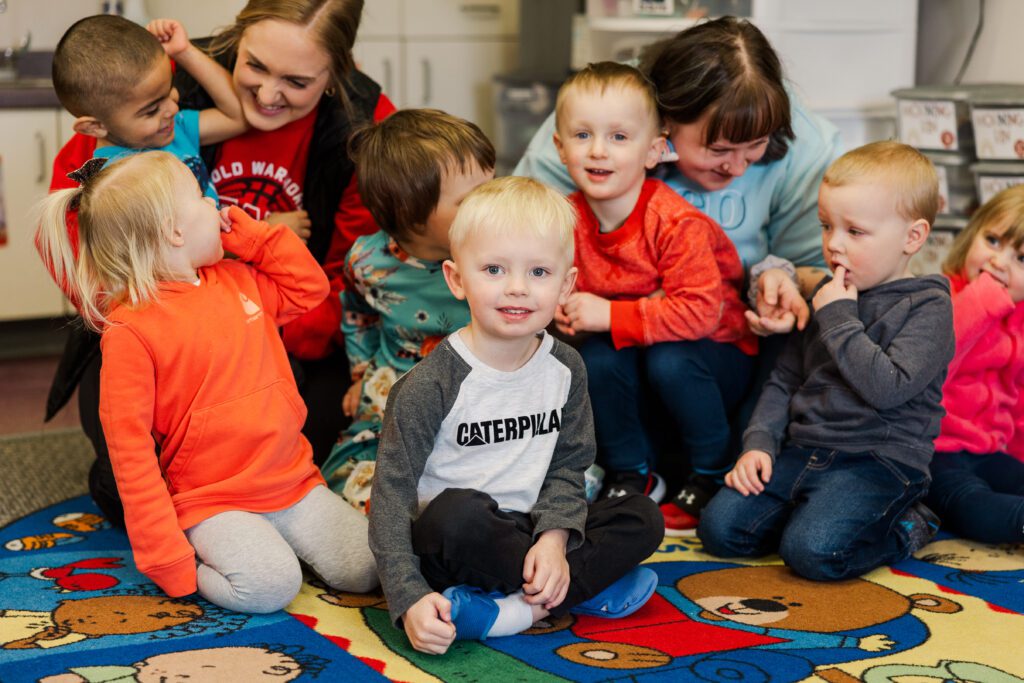To keep our strong regional economy, it takes community-led solutions to the child care crisis.

We support community planning, public policy, project investment and technical assistance, public relations and appreciation, and professional development for child care.
Quality, affordable child care is essential for a strong economy and vibrant communities. Access to child care is one of the top economic development issues in our region today. Parents face long waiting lists to secure a child care spot, rely on friends and family and may miss work when they don’t have consistent child care. Meanwhile, startup costs and challenges with recruitment and retention can be a hurdle for providers and centers.
The barriers to high quality and affordable care require a comprehensive, regional approach to find sustainable solutions.
Our Work Includes:
Helping plan and finance local child care projects
Our Bright Beginnings Loan Program is all about the business of child care. This program provides capital and business education to home or center-based licensed child care providers in southwest Minnesota. Through a partnership with First Children’s Finance, Bright Beginnings loan clients receive technical assistance during the life of the loan.
Investing in professional development opportunities for our early care and education professionals
Child and early care professionals are critical to economic mobility. They allow primary caregivers to work and support their families. They help children with learning and development of lifelong skills. They help ensure employers can attract and retain talent. They have a direct impact on the quality of life in our communities.
We’re a regional partner in providing funding, training, and resources for early care and education professionals. We also work to raise awareness of the importance of child care and to advocate for policies that support child care providers.
Collaborating with communities to ensure local child care solutions fit their needs
We believe that by working together, we can make a difference in the lives of children and families in southwest Minnesota. Everyone has a role to play in making child care more accessible and affordable. Our approach equips communities to ensure child care related work is right-sized for their needs.




